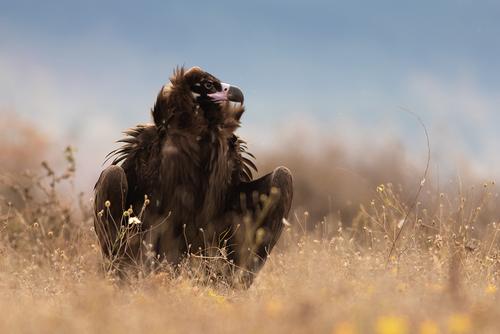Cinereous vulture Ostrava, previously released into the wild in Bulgaria, has been found dead in south-west Greece. It is very likely that the young female had fallen victim to poisoned bait.

Ostrava in the Bulgarian Kotel Mountains shortly before she left the place of her reintroduction.
© Hristo Peshev/FWFFIn July 2018, Ostrava, together with two other cinereous vultures, was released in Bulgaria. Just like the other two, she had been making exploratory flights since the autumn, and most recently the young female had been living in the extreme south-west of the Greek peninsula Peloponnese. The illegal practice of putting down poisoned bait to control jackals, foxes and stray dogs is commonplace in the region. As carrion-eaters, vultures fall victim to this particular culling method in large numbers all over the world.
When, in mid-February, Ostrava’s GPS transmitter stopped showing any signs of movement, vulture conservationists in Bulgaria and Greece feared the worst. On 16 February, Ostrava was found dead by volunteers of the Hellenic Ornithological Society. As she still had food remains in her bill, poisoning seems likely; birds usually die immediately after consuming contaminated food.
For the international project aiming to reintroduce the cinereous vulture to Bulgaria, Ostrava’s death is a bitter blow. It shows once again just how important it is that the issue of poisoning in the Balkans is brought under control. A study suggests that more than 2,300 vultures have been poisoned in the Balkans in the last twenty years.


